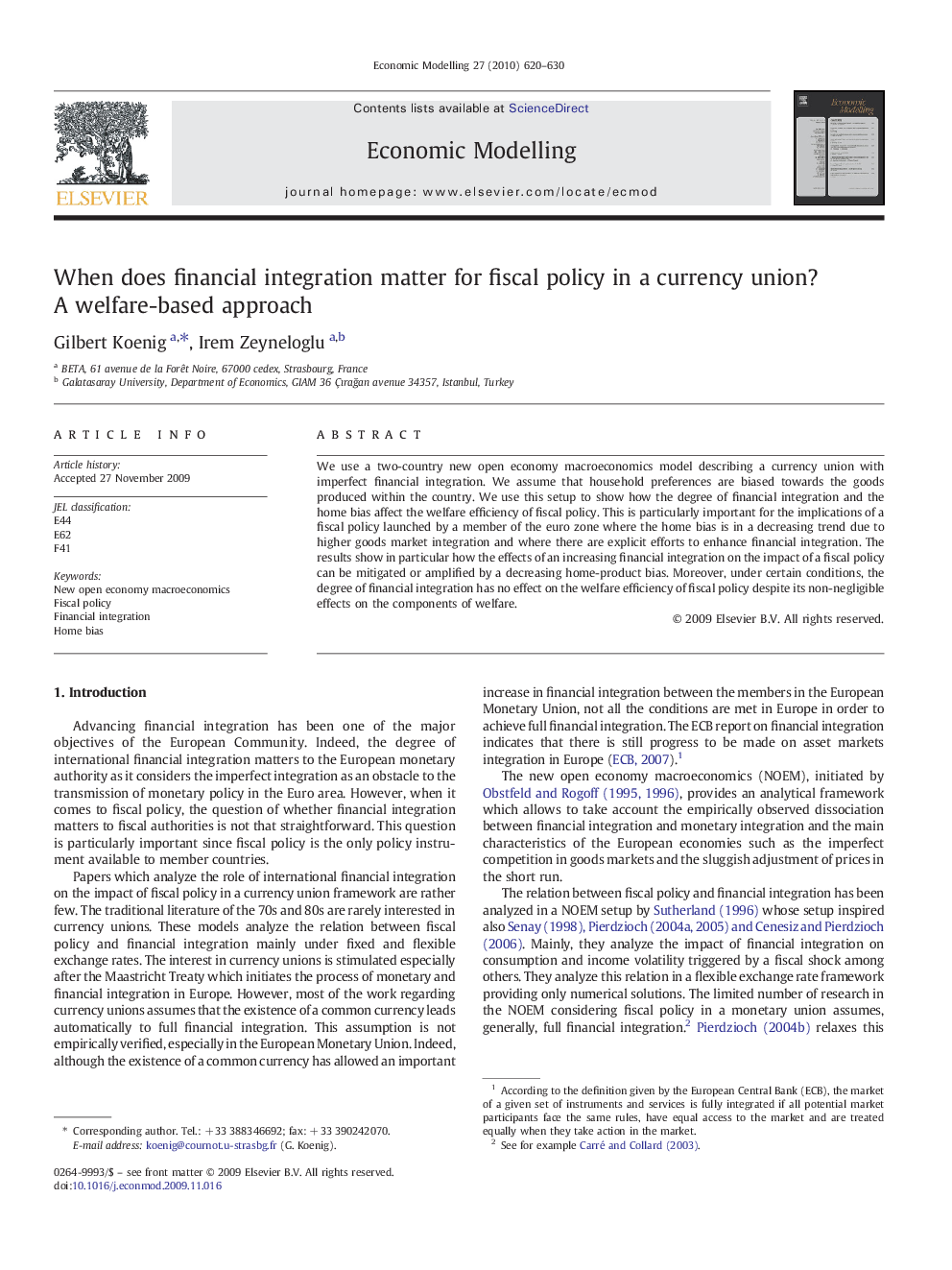| Article ID | Journal | Published Year | Pages | File Type |
|---|---|---|---|---|
| 5055158 | Economic Modelling | 2010 | 11 Pages |
Abstract
We use a two-country new open economy macroeconomics model describing a currency union with imperfect financial integration. We assume that household preferences are biased towards the goods produced within the country. We use this setup to show how the degree of financial integration and the home bias affect the welfare efficiency of fiscal policy. This is particularly important for the implications of a fiscal policy launched by a member of the euro zone where the home bias is in a decreasing trend due to higher goods market integration and where there are explicit efforts to enhance financial integration. The results show in particular how the effects of an increasing financial integration on the impact of a fiscal policy can be mitigated or amplified by a decreasing home-product bias. Moreover, under certain conditions, the degree of financial integration has no effect on the welfare efficiency of fiscal policy despite its non-negligible effects on the components of welfare.
Related Topics
Social Sciences and Humanities
Economics, Econometrics and Finance
Economics and Econometrics
Authors
Gilbert Koenig, Irem Zeyneloglu,
